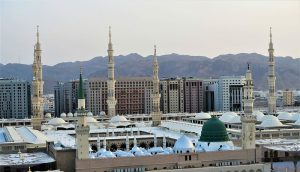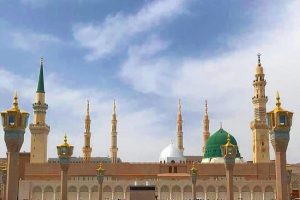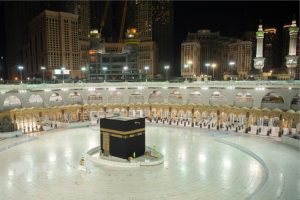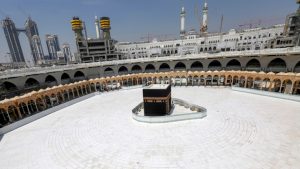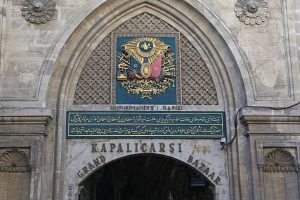Each person measures his prosperity differently; someone feels that if he has anchor tenants then he is successful, another feels that if he achieves a good pass then he is successful and yet another feels that if he gets a booming business then he is successful. However, Allah Ta‘ala measures …
Read More »Recent Posts
December, 2013
-
3 December
The Harms of Taking Oaths in Business
عَن أبي هُرَيرَة رَضِيَ الله عَنه قَال سَمِعتُ النبيَّ صلى الله عليه وَسَلَّم يَقُولُ الحِلْفُ مَنفَقَةٌ لِلسِّلْعَةِ مَمْحَقَةٌ للبركة (البخاري رقم 2087) Hazrat Abu Hurayrah (Radhiyallahu Anhu) reports that Rasulullah (Sallallahu Alaihi Wasallam) said: “Taking oaths will be a means of promoting the commodity in order to sell it, but will …
Read More » -
1 December
Performing Salaah behind Habib Ajmi (Rahmatullahi Alaihi)
Hadhrat Moulana Ashraf Ali Thanwi (Rahmatullahi Alaihi) relates: Hadhrat Hasan Basri (Rahmatullahi Alaihi) was blessed with profound understanding and comprehensive knowledge in all sciences of Deen; he was a Muhaddith (commentator of Hadith), Mufassir (commentator of the Quraan), Sufi and a Qaari. One night while Hadhrat Habib Ajmi (Rahmatullahi Alaihi) …
Read More »
November, 2013
-
30 November
Surah Zumar, Aayah 1-9
Transcript of Tafseer by Hazrat Mufti Ebrahim Salejee Saheb تَنزيلُ الكِتـٰبِ مِنَ اللَّـهِ العَزيزِ الحَكيمِ ﴿١﴾ إِنّا أَنزَلنا إِلَيكَ الكِتـٰبَ بِالحَقِّ فَاعبُدِ اللَّـهَ مُخلِصًا لَهُ الدّينَ ﴿٢﴾ أَلا لِلَّـهِ الدّينُ الخالِصُ وَالَّذينَ اتَّخَذوا مِن دونِهِ أَولِياءَ ما نَعبُدُهُم إِلّا لِيُقَرِّبونا إِلَى اللَّـهِ زُلفىٰ إِنَّ اللَّـهَ يَحكُمُ بَينَهُم فى ما هُم …
Read More » -
30 November
Reciting Three Quls before Retiring to Bed
Dua One: One should recite the three Quls (i.e. Surah Ikhlaas, Surah Falaq and Surah Naas) before retiring to bed every night. عن عائشة رضى الله عنها أن النبى صلى الله عليه وسلم كان إذا أوى إلى فراشه كل ليلة جمع كفيه ثم نفث فيهما وقرأ فيهما (قل هو الله …
Read More »
-
Hazrat Abu Zarr (radhiyallahu ‘anhu) moving to Shaam and Rabadhah
It was on account of Hazrat Abu Zarr Ghifaari (radhiyallahu ‘anhu) looking at Rasulullah’s (sallallahu …
Read More » -
True Achievements – The Achievements of Deen – Adherence to The Sunnah – Part 54
-
Hazrat Abu Zar’s (radhiyallahu ‘anhu) Quality of Worldly Abstinence
-
Hazrat Moulana Muhammed Yusuf Kaandhelwi (rahimahullah) – Introduction – Adherence to The Sunnah – Part 53
-
The Adherence of Hazrat Abu Zar (radhiyallahu ‘anhu) to the Instruction of Rasulullah (sallallahu ‘alaihi wasallam
-
Receiving Seventy Rewards
Hazrat Abdullah bin Amr bin Aas (radhiyallahu ‘anhuma) reported, “Whoever sends salutations upon Nabi (sallallahu ‘alaihi wasallam) once,...
Read More » -
Increase in Sustenance
-
The Reward of Fasting on the Day of Arafah
-
The Angel that Stands at the Blessed Grave of Hazrat Rasulullah (sallallahu ‘alaihi wasallam) to Convey the Durood of the Ummah
-
Reciting Durood when Entering the Musjid
-
Sunnats and Aadaab of the Guest – 4
16. The guest should not eat all the food which the host serves in the …
Read More » -
Sunnats and Aadaab of the Guest – 3
-
Sunnats and Aadaab of the Guest – 2
-
Sunnats and Aadaab of the Guest – 1
-
Sunnats and Aadaab of the Host – 6
-
Hazrat Umar bin Khattaab (radhiyallahu ‘anhu)
Hazrat Umar (radhiyallahu ‘anhu) is the second khalifah of Islam and the greatest person of …
Read More » -
Hazrat Ali (radhiyallahu ‘anhu) – Part Forty-One – Being Sent by Rasulullah (sallallahu ‘alaihi wasallam) to Level the Graves, Destroy Idols and Erase Pictures
-
Rasulullah (sallallahu ‘alaihi wasallam) Approving of the Verdict of Hazrat Ali (radhiyallahu ‘anhu) – Part Forty
-
The True Ulamaa – Hazrat Ali (radhiyallahu ‘anhu) – Part Thirty Nine
-
Du‘aa for Assistance in Settling Debts – Hazrat Ali (radhiyallahu ‘anhu) – Part Thirty Eight
 Ihyaaud Deen An Effort to Revive Deen in Totality
Ihyaaud Deen An Effort to Revive Deen in Totality























